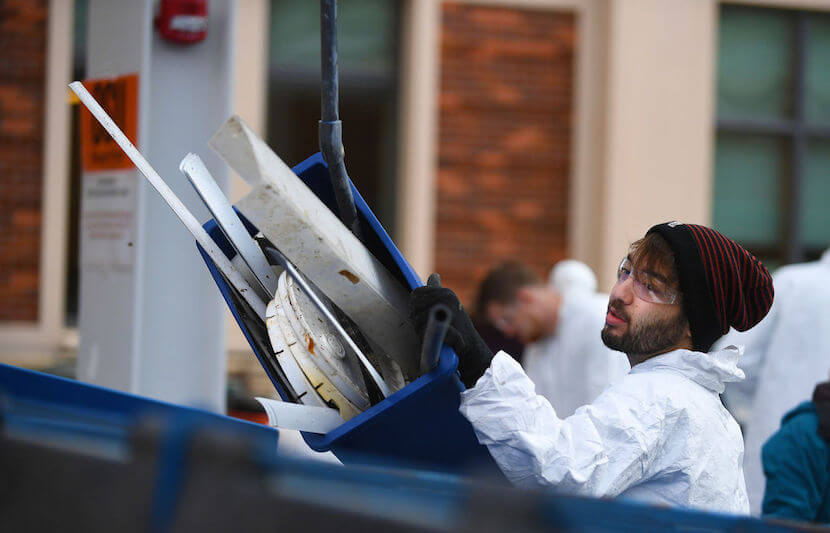Sorting through waste is not an appealing task, but more and more universities across the country are conducting campus waste audits to advance their zero waste goals.
Waste audits help universities determine how much waste could have been recycled, composted, or reused and also create a baseline for comparison from one waste audit to the next.
Waste audits are so helpful for sustainability that universities who participate in the AASHE STARS (American Association for Sustainability in Higher Education – Sustainability Tracking, Assessment & Rating System) are required to report the results of their waste audits and the programs they have in place to reduce waste.
Some universities are veterans conducting regular waste audits, while others are still fairly new to the process.
Harvard University, for example, encourages each school, unit and department to conduct waste audits and has clear procedures in place, including an online booking calendar. Waste audits are conducted every Thursdays and Fridays between 1 p.m. and 4 p.m.
In contrast, the University of Hawaiʻi at Mānoa conducted its second audit in nearly 20 years this fall.

Oregon State University (OSU) sits somewhere in the middle. According to its most recent AASHE STARS audit report, it does not conduct regular waste audits but has dumpster audits, usually from residence halls, “at least a few times per year.”
In addition, OSU, like many other universities, has several student-led sustainability initiatives that tackle climate change. The Campus Recycling group, for example, works with the university’s Sports and Recreation to audit waste from the recreation center.
OSU has also introduced students from the College of Agriculture Sciences studying sustainability to waste audits for the first time in October. Many were part of a SUS 304 Sustainability Assessment course taught by Professor Ann Scheerer, who serves as academic adviser to the sustainability double degree program.
Scheerer said in a videotaped statement that the course is important for participants to learn because it will help them gauge and monitor the direction in which they are going.

The students were divided into six groups, with each auditing a unique building’s waste and then conducting an analysis of the profile of the waste streams from that building, Scheerer said.
“The two parties involved (OSU campus recycling and the Sustainability Assessment instructor and students) were all pleased with the results,” she said. “The campus recycling manager has expressed enthusiasm for the assessment reports that the students developed. These reports inform him on contamination issues and how his staff could do a better job of communicating where certain waste should be discarded.”
In terms of the course’s learning objectives, Scheerer said she was very pleased with the positive attitude and cooperation displayed by the students.
“They were eager to engage in hands-on work and performed well,” she said.
Students at Stanford University also conduct waste audits as part of their CEE/ES 109 Green Buildings and Behavior course.
“The audit makes this very real for [the students],” Stanford’s director of sustainability and SEM business services Fahmida Ahmed told the Stanford Report.
Scheerer agrees.
“By integrating this experiential learning waste audit project, students not only learned more about what it takes to manage a recycling system, but also helped campus recycling group identify several causes of contamination in the recycling and waste streams at Oregon State University, which has led to solutions they are now putting in place,” said Sheerer.
No matter the nature or depth of a university’s waste audit program, the driving force behind each program is the belief that zero waste means no trash and waste audits are crucial to advance sustainability goals.



